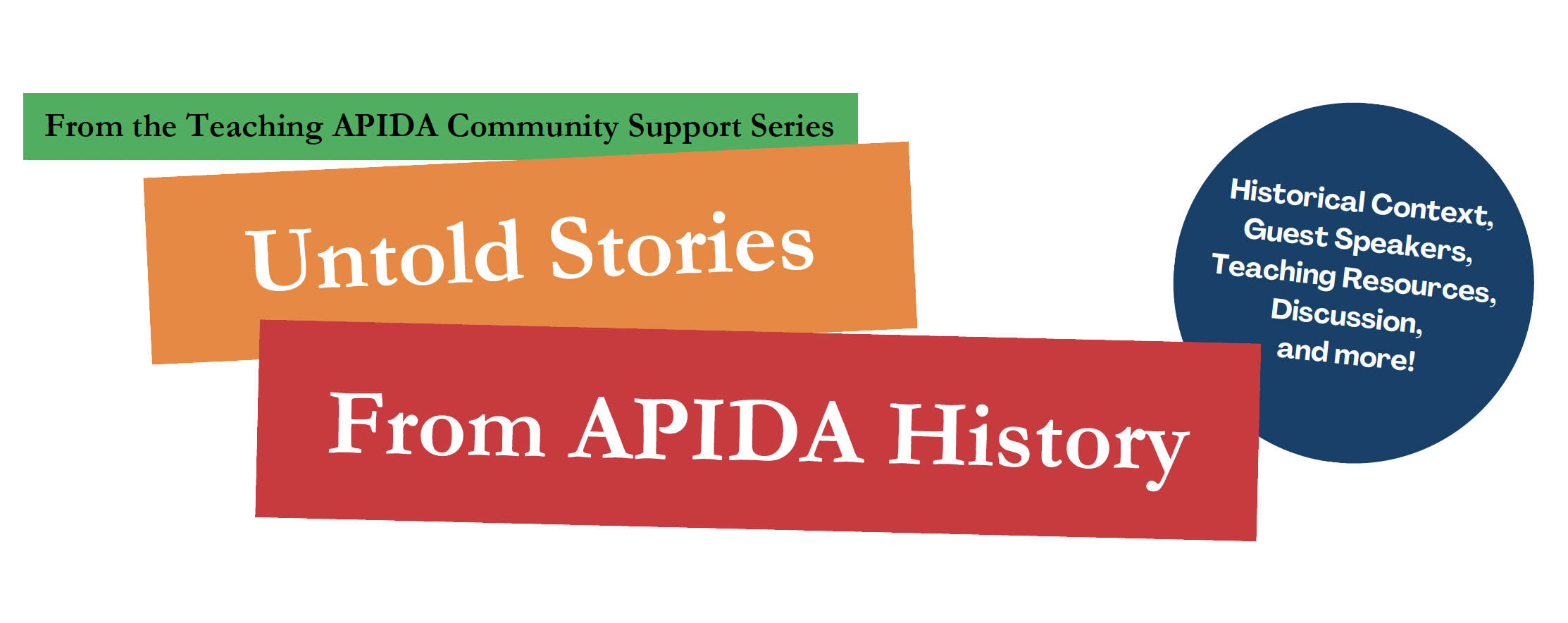Free Professional Development Workshops


Our new Teaching APIDA Community Support Series will offer participants the opportunity to do a deep dive into a story alongside guest speakers.
Please see live workshop topics, schedule, and enrollment in:
For more up-to-date information about our programming, follow us on Instagram (@asianamedu) and subscribe to our newsletter!
Educators can earn Professional Development credits at the discretion of their local education agency.
Please see PD Policies for Educators for more information.
Please see PD Policies for Educators for more information.